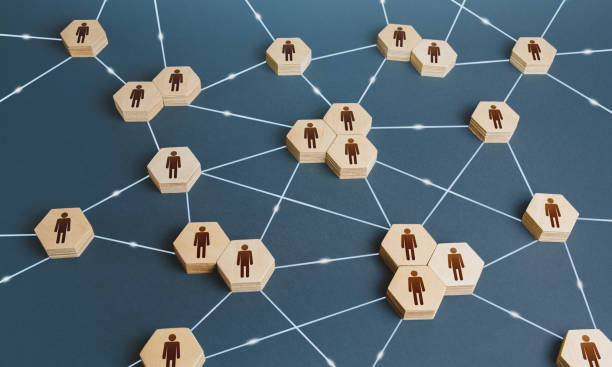Redefining Governance in the Digital Age
Decentralized Autonomous Organizations (DAOs) are revolutionizing the way governance and decision-making are conducted in the digital age. By leveraging blockchain technology, DAOs offer a transparent, efficient, and democratic way to manage organizations without the need for centralized authority. As the interest in cryptocurrencies and blockchain continues to grow, understanding DAOs’ potential and functioning becomes increasingly important.
What is a DAO?
A DAO is a digital organization governed by smart contracts on a blockchain. These smart contracts are self-executing contracts with the terms directly written into code, ensuring that decisions are made collectively by members rather than a central authority. This structure allows for a high degree of transparency and reduces the risk of corruption or manipulation.
Members of a DAO typically hold tokens that grant them voting rights. Decisions such as project funding, resource allocation, and governance changes are made through proposals that members vote on. The outcome is determined by the collective vote, with the smart contract executing the decision automatically.
The Benefits of DAOs
- Transparency: All transactions and decisions are recorded on the blockchain, making it easy for anyone to verify and audit. This level of transparency fosters trust among members and stakeholders.
- Decentralization: DAOs eliminate the need for a central authority, distributing power among all members. This decentralized approach ensures that no single entity can control the organization, promoting fairness and equality.
- Efficiency: Smart contracts automate many of the processes involved in governance, reducing the need for intermediaries and speeding up decision-making.
- Global Participation: DAOs are accessible to anyone with an internet connection, allowing for global participation. This inclusivity can lead to more diverse perspectives and innovative solutions.
Real-World Applications
DAOs have numerous potential applications across various sectors. For instance, they can be used to manage investment funds, where members vote on which projects to fund. They can also be applied in the management of decentralized networks, where governance decisions are made collectively by network participants.
One notable example is the 77.me platform, which could integrate DAO mechanisms to allow its users to vote on new features or changes to the service. By involving the community in decision-making, platforms like these can ensure that they remain aligned with the users’ needs and preferences.
Challenges and Considerations
While DAOs offer many benefits, they are not without challenges. One of the primary issues is the complexity of creating and managing smart contracts. Ensuring that these contracts are free of bugs and vulnerabilities is crucial, as any flaw can be exploited.
Additionally, DAOs must navigate the regulatory landscape, which can be uncertain and varies by jurisdiction. It is essential for DAOs to comply with local laws and regulations to avoid legal complications.
Another challenge is the potential for decision-making gridlock. If members are divided on a proposal, it can lead to stalemates that hinder progress. Effective governance models and voting mechanisms are needed to manage these situations.
The Future of DAOs
The future of DAOs looks promising as more people recognize the potential of decentralized governance. Innovations in blockchain technology and smart contract development will likely address many of the current challenges, making DAOs more accessible and secure.
As DAOs become more prevalent, traditional organizations may adopt similar models, blending decentralized governance with conventional structures. This hybrid approach could bring the best of both worlds, enhancing transparency, efficiency, and inclusivity in governance.
Buying and Transacting Bitcoin in the DAO Ecosystem
For those involved in the DAO ecosystem, understanding how to transact with cryptocurrencies is essential. Questions like “can you buy Bitcoin on Zelle?” and “can you send Bitcoin through Zelle?” are common as users seek convenient ways to manage their digital assets. While platforms like Zelle are primarily used for traditional fiat transactions, converting Bitcoin to fiat and vice versa often requires using cryptocurrency exchanges.
Platforms such as 77.me can facilitate these transactions, providing users with the tools and resources needed to buy, sell, and manage their cryptocurrencies. By integrating these services, DAO participants can easily handle their financial transactions, contributing to the organization’s activities and governance.
Conclusion: Embracing Decentralized Governance
Decentralized Autonomous Organizations represent a significant shift in how we think about governance and organizational management. By leveraging blockchain technology, DAOs offer a transparent, efficient, and democratic way to make decisions collectively. As the technology and regulatory landscape evolve, DAOs have the potential to transform various sectors, promoting inclusivity and innovation in governance. Embracing this new way of governance could lead to more resilient and adaptive organizations in the digital age.

